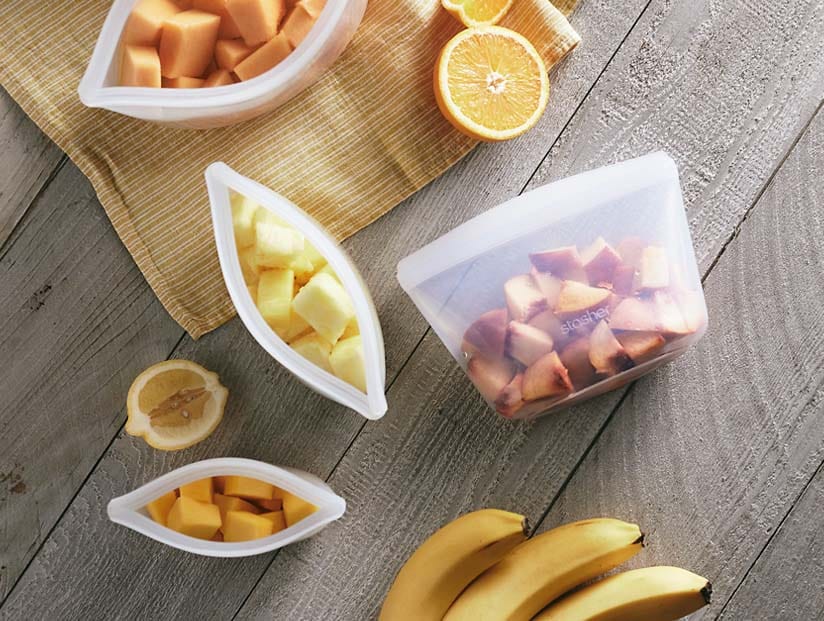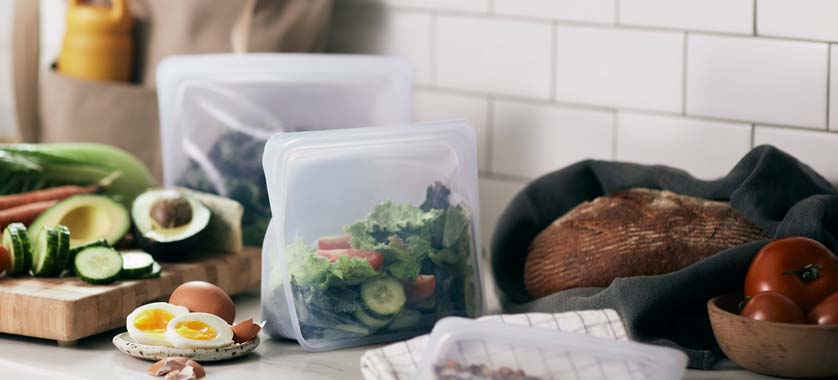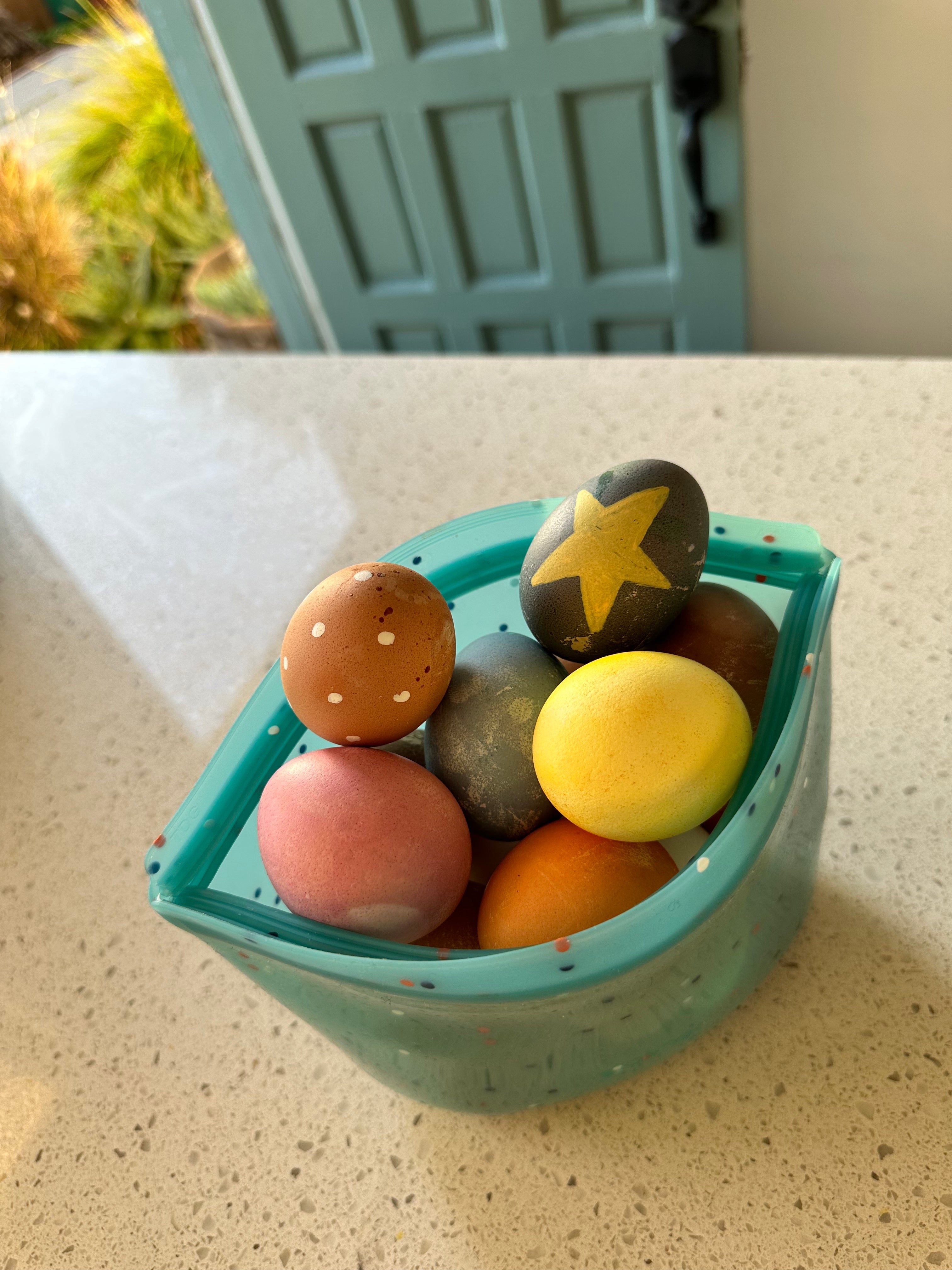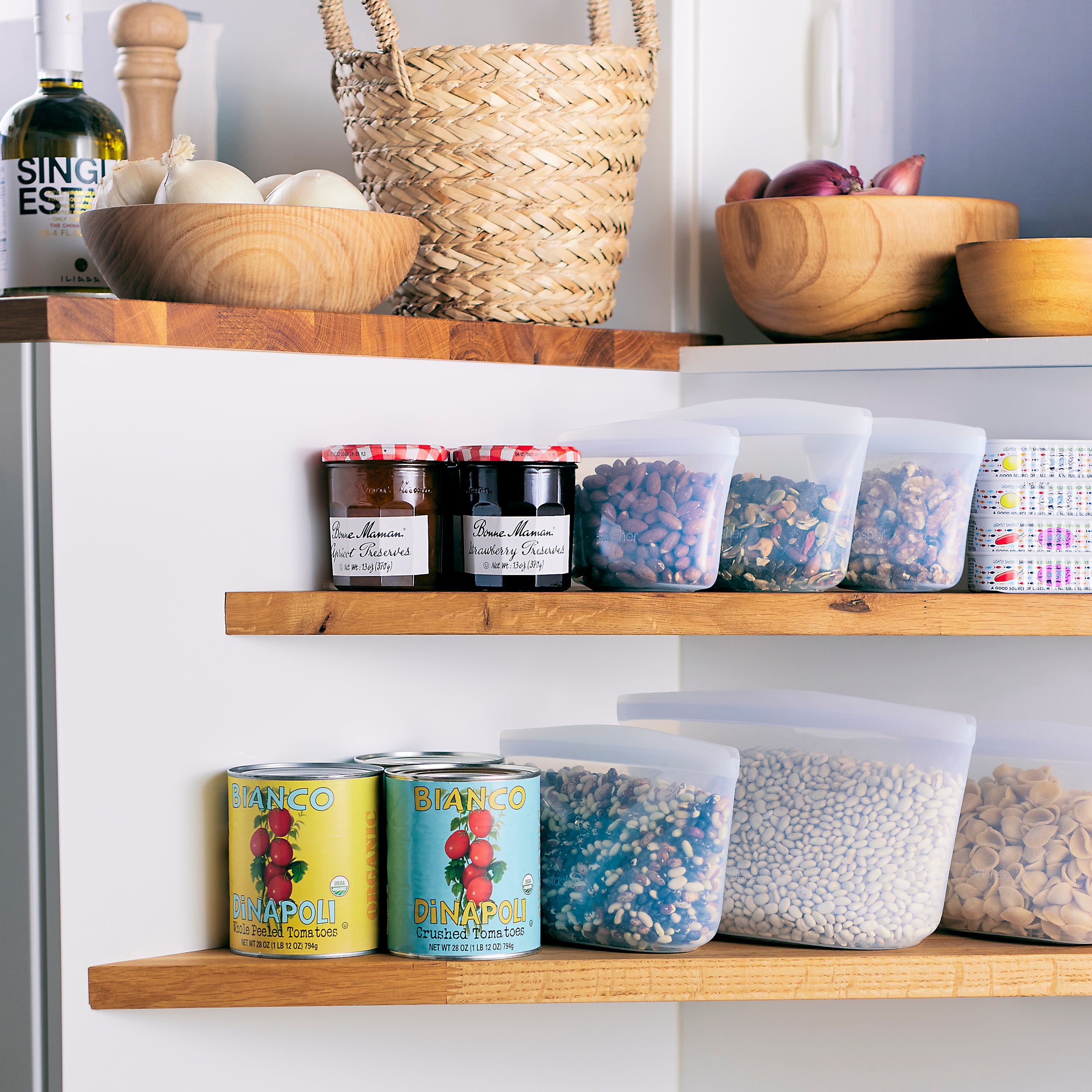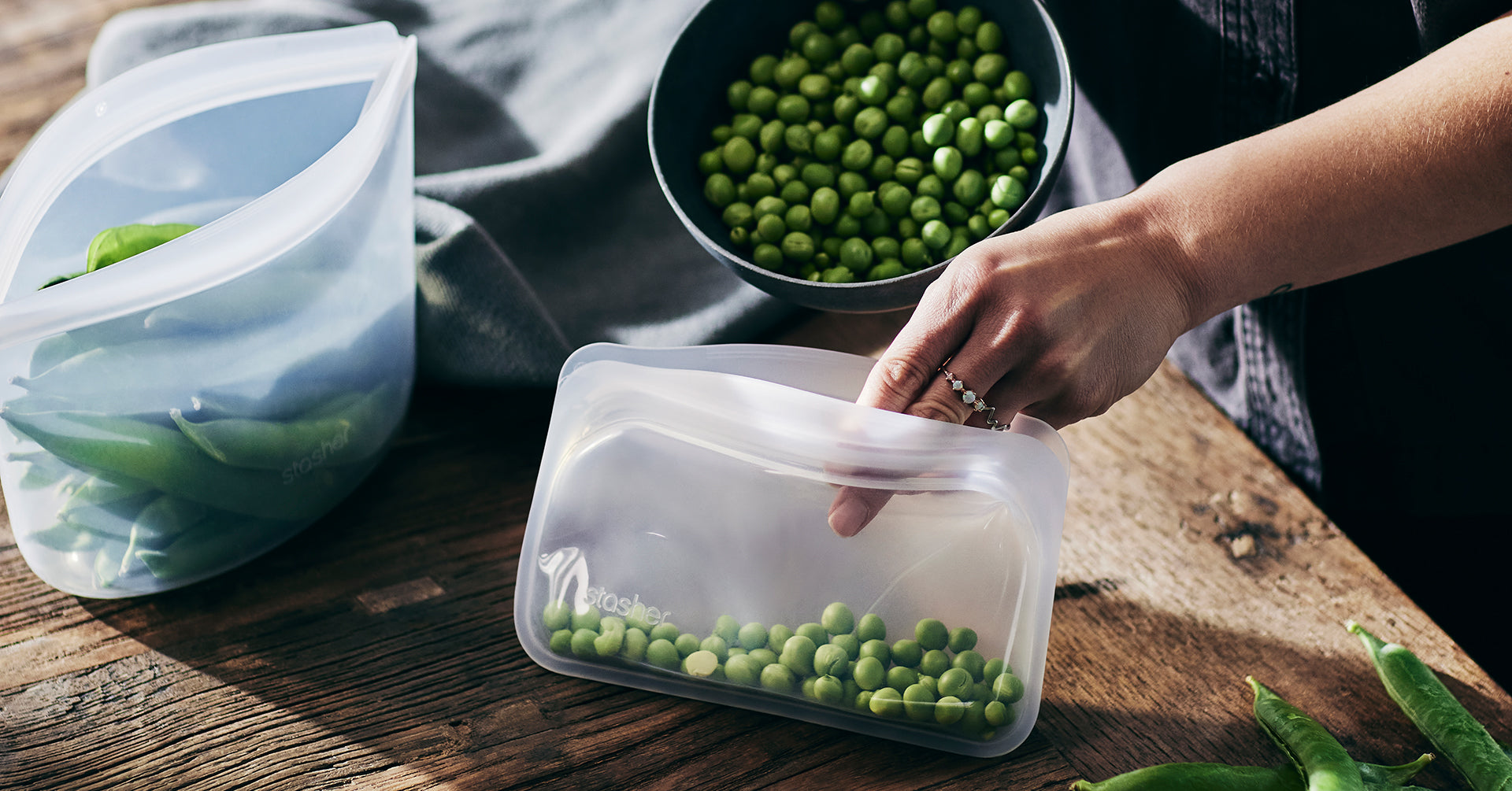
How to Store Spring Fruits & Veggies for Ultimate Freshness
As the cold of winter melts away and a new, bountiful season comes in, we’re more excited than ever for spring cooking. But to ensure your meals are made smoothly, you’ll want to store those fresh fruits and veggies properly — not only will they last longer, but you’ll save money by avoiding food waste.
At Stasher, we’re passionate about proper food storage. Thankfully, our platinum silicone bags and bowls make it easy to store all your favorite fruits and veggies like a pro. In this guide, we’ll go through the basics of food storage with some of the best produce the spring season offers.
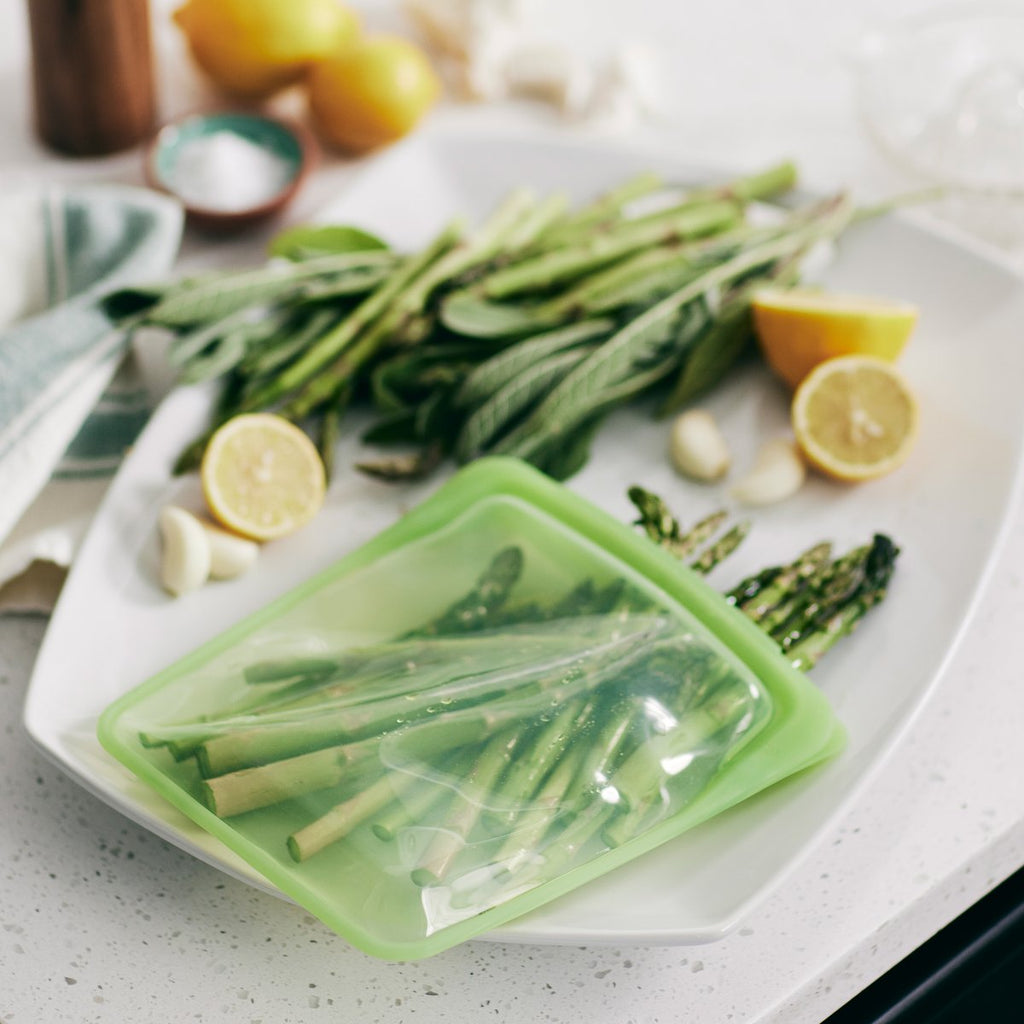
Proper Produce Storage
Whatever season of the year we’re in, the way that you store your fruits and veggies is crucial to ensuring they stay fresh for longer. Many of us don’t know what the proper storage techniques are, so we always recommend checking out guides depending on what produce haul you have. (Psst: The USDA also offers guides for seasonal produce to help you shop.)The basics? Store your fruit and veggies in cold, dry places, like the crisper drawer in your fridge. We also recommend using glass or other food-safe container, like platinum silicone Stasher bags. Not all silicone or silicone-like material is made equal, so make sure to check labels to ensure the silicone food storage solutions you use are free from harmful chemicals, heat-safe, and pass FDA and European food-safety requirements.
Roots & Bulbs
Many root veggies and bulbs like onions, leeks, scallions, and garlic thrive when stored in a cool, dry place. Most of the time that means the fridge, but in some cases you can keep these veggies stored on your counter or in a dark pantry with lots of airflow (like garlic) or even with their roots submerged in water (like scallions).
Legumes
Peas, fava beans, and lentils should be stored in breathable bags or Stasher bags to prevent moisture buildup. For optimal freshness, keep them in their pods until ready to use. Store these bags in the refrigerator's crisper drawer for up to several days, ensuring they remain dry to avoid spoilage.
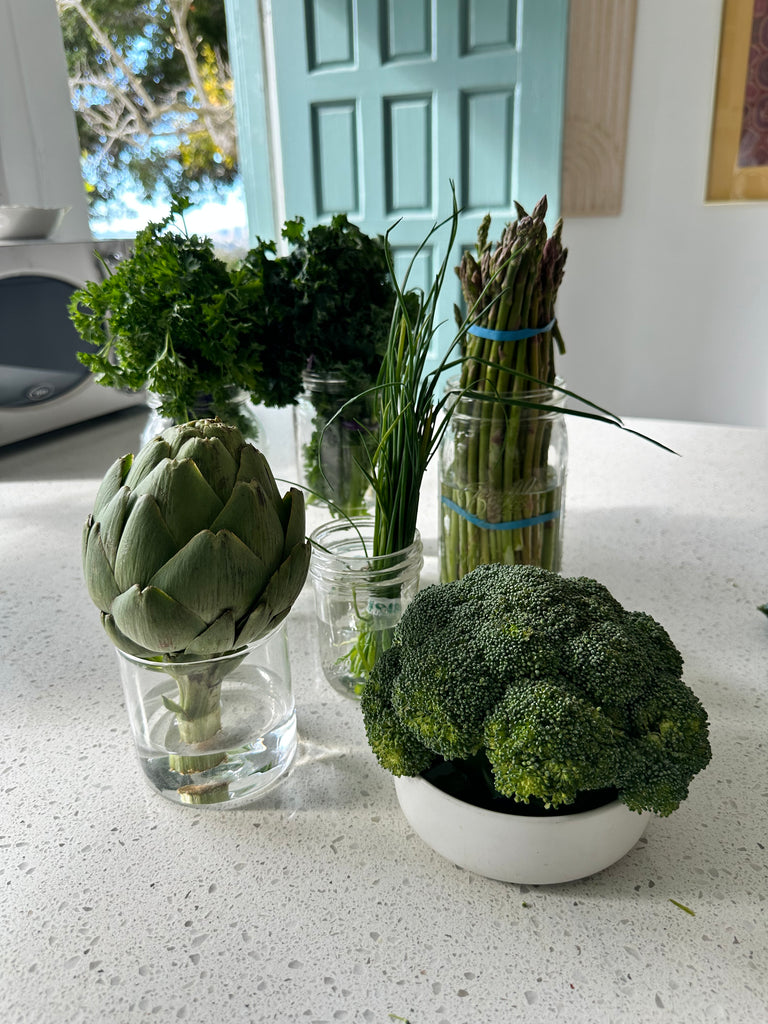
Earthy Greens
Spring greens like spinach and arugula benefit from being wrapped in a dry paper towel before storing them in a sealed container or Stasher bag. Doing this helps absorb excess moisture, keeping the greens flavorful for 3 to 5 days in the refrigerator's crisper drawer. However, there is a key difference: spinach shouldn’t be stored with fruits like bananas or apples and unwashed until ready to use whereas arugula should be thoroughly rinsed before storing and isn’t susceptible to spoilage from fruits.
Tropical Fruits
Your favorite fruits from the tropics, such as mangoes, pineapples, and bananas are best stored whole on the counter for 1 to 3 days to allow them to ripen fully. You can help pineapples ripen by covering them with a brown paper bag! Once ripe, transfer them to the refrigerator to extend their shelf life for up to a week. If they’ve been cut, store leftover pieces in an airtight container in the fridge.
By following these simple storage tips, you can enjoy the vibrant flavors and nutritional benefits of spring produce while reducing food waste. Utilize breathable bags, containers, and Stasher's reusable platinum silicone bags for eco-friendly and sustainable storage solutions.



